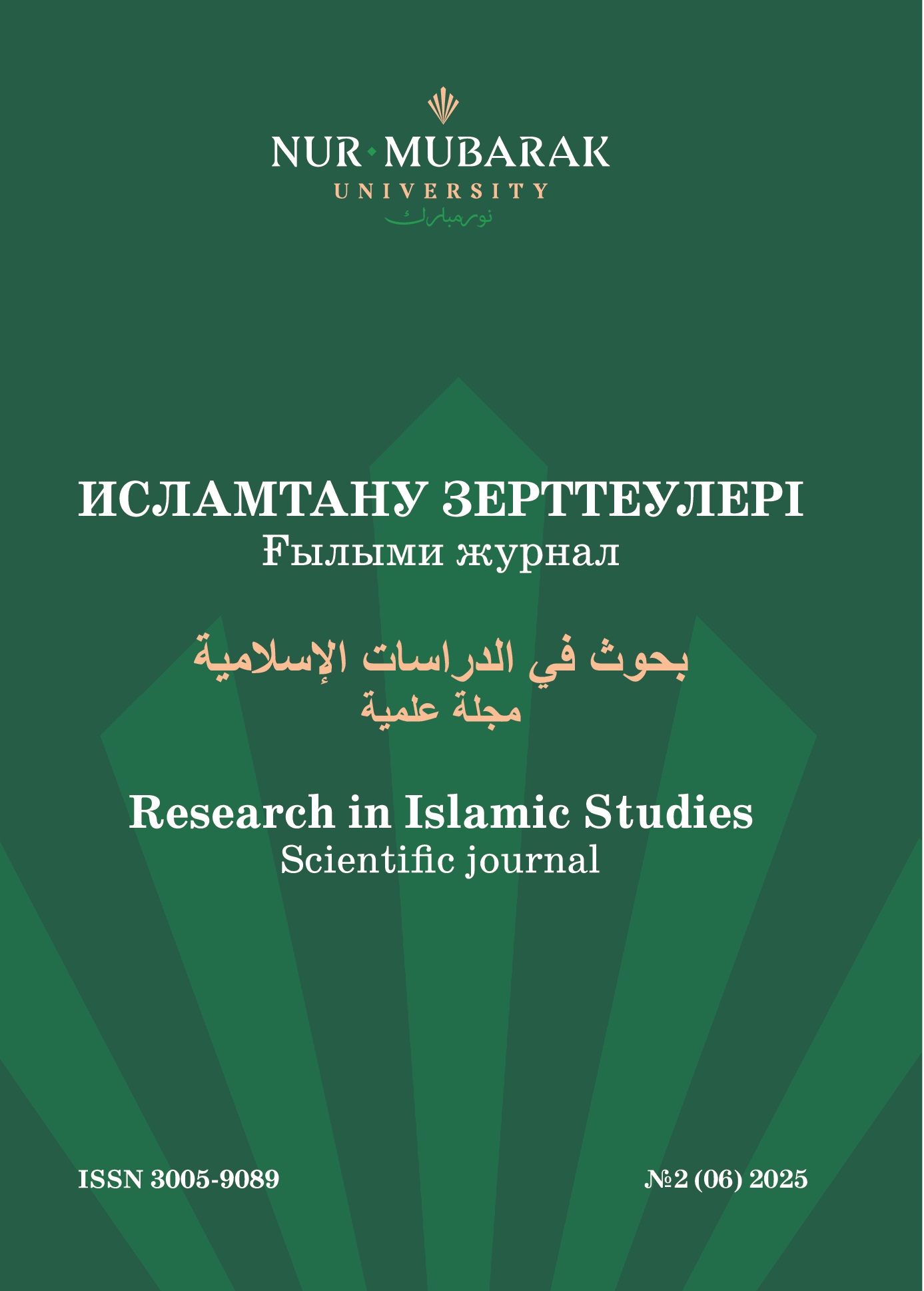Аннотация
В данной статье рассматриваются теоретические и практические основы понятия морального долга в трактате среднеазиатского ханафитского ученого Абуль Касыма аль-Фараби/Фариаби (1130-1210) «Халисатул хақайқ». Аль-Фариаби связывает моральный долг с верой, анализируя его роль в духовном совершенствовании и личностном развитии. Ученый рассматривает его как внутреннюю духовную силу, регулирующую поведение личности и социальные отношения.
В исследовании изучается категориальное значение морального долга на основе трудов исламских мыслителей. Анализируются взгляды Т. Габитова, Абдуллы Драза, шейха Надима аль-Джисри, Абу Хамида аль-Газали и аль-Маварди, а также их методологические подходы к определению морального долга. Кроме того, рассматривается взаимосвязь морального долга с понятиями веры, нравственности, ответственности и религиозного обязательства в исламской философии.
Исследование анализирует такие принципы, как разум, ответственность, призыв к добру и предостережение от зла, подчеркивая роль исламской этики в обеспечении общественного порядка и стабильности. Рассматриваются религиозные и социальные аспекты концепции морального долга в трудах средневековых исламских мыслителей.
В статье подчеркивается актуальность исламских моральных норм в современном обществе, их значение в духовно-нравственном воспитании. Результаты исследования раскрывают философское, историческое и религиозное значение морального долга и его роль в формировании человеческой сущности.



